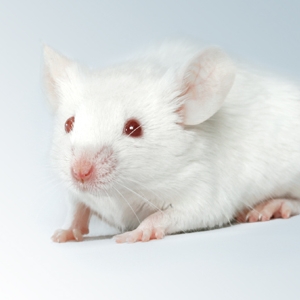It used to be that you could count the new items on the medical / nutrition / food news wires on the f1ngers of one hand. Now, for some reason, they’re coming thick and fast. Not all scream for their own solo post, but many smaller topics demand our attention nevertheless…
 In the future, simply following personalized dietary ‘prescriptions’ could
In the future, simply following personalized dietary ‘prescriptions’ could
help even people like her. But would they stick to a prescribed
protocol, especially if it called for them to eat less?
Herewith, then, some of the stories I’ve been looking to place in good homes this past week…
Obesity, disease result of ‘dietary mismatch’?
A new theory being advanced by researchers from Princeton University suggests that that helping reduce the risk of conditions such as obesity, cardiovascular disease and diabetes may be as easy as matching our diets to what our ancestors ate, and our bodies are genetically wired to eat.
“Humans evolved in a very different environment than the one we’re currently living in,” said Amanda Lea, a Postdoctoral Research Fellow of Princeton. “No one diet is universally bad. It’s about the mismatch between your evolutionary history and what you’re currently eating.”
Scientists managed to find a culture in Northern Kenya. the Turkana, whose otherwise homogeneous population split during the 1980s when oil was found on their land, and some of the population moved to the city while others stayed home.
We are finding more or less what we expected,” said Study Senior Researcher Julien Ayroles, . “Transitioning to this carbohydrate-based diet makes people sick.”
“There’s a cumulative effect,” added Lea. “The more you experience the urban environment – the evolutionarily mismatched environment – the worse it’s going to be for your health.”
Our traditional diet started to change dramatically about 100 years ago when processed foods started to appear. Recent advice to east less processed food and more fresh food might just be a simple key to better general health, after all!
Vitamin A boosts fat burning in cold conditions
Could vitamin A supplements plus simply moving to a colder climate be all it takes to burn more fat and lose weight? Maybe…
Researchers from the Medical University of Vienna recently published study results showing that – in mouse experiments, at least – Vitamin A supplements given to subjects living in a colder climate increased the transformation of regular white fat to brown fat, which that can be metabolized to provide heat in the body.
A team led by Dr.Florian Kiefer from the Division of Endocrinology and Metabolism at MedUni Vienna demonstrated how moderate application of cold increases the levels of vitamin A and its blood transporter, a retinol-binding protein. Most of the vitamin A reserves are stored in the liver and cold exposure seems to stimulate the redistribution of vitamin A towards the adipose [fat] tissue. The cold-induced increase in vitamin A led to a conversion of white fat into brown fat (“browning”), with a higher rate of fat burning.
The result? “As a consequence, fat oxidation and heat production were perturbed so that the mice were no longer able to protect themselves against the cold,” explains Kiefer. “We have discovered a new mechanism by which vitamin A regulates lipid combustion and heat generation in cold conditions. This could help us to develop new therapeutic interventions that exploit this specific mechanism.”
As is often the case with promising mouse studies, Kiefler says more study, and eventually study in humans is need before starting to develop any vitamin A-based therapies.
Soy metabolism may lower risk factor for dementia
A research team at the University of Pittsburgh says a metabolite produced following consumption of dietary Soy may decrease a key risk factor for dementia – with the help of the right bacteria.
“White matter lesions are significant risk factors for cognitive decline, dementia and all-cause mortality,” said Study Lead Author Dr. Akira Sekikawa. “We found 50 percent more white matter lesions in people who cannot produce equol compared to people who can produce it, which is a surprisingly huge effect.”
Equol is produced when byproducts of Soy metabolism react with certain gut bacteria. Back-up confirmation of this from other experiments has shown that dietary intake of soy isoflavones has been linked to a lower risk for heart disease and dementia. However, most clinical trials in America have failed to show this. Sekikawa believes that this discrepancy may be due to the microbiome – 40-70 percent of Japanese harbor gut bacteria that can convert dietary isoflavones into equol compared to only 20-30 percent of Americans.
My take
There’s growing evidence that certain dietary measures we can all take to lower our collective risk of some serious health conditions that have been making people sick, shortening their lives and overburdening the already heavily stressed health care system. If they won’t hurt us, why not give them a whirl and see if we can’t make ourselves feel and function at least a little better?
~ Maggie J.

